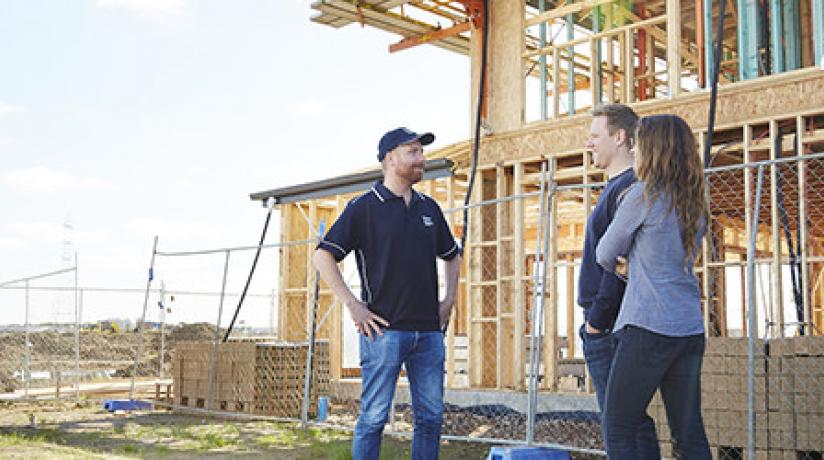Under the Building and Construction Industry Security of Payment Act 2002 (Vic) (the “SOP Act”), a builder generally cannot make a payment claim against a building owner in relation to a domestic building contract. One exception, is where the building owner is “in the business of building residences” and the contract is entered into “in the course of, or in connection with, that business” per Section 7(2)(b) of the SOP Act.
In the recent case of Promax Building Developments Pty Ltd v P Carol & Co Pty Ltd [2017] VCC 495, the County Court of Victoria further clarified the meaning of being “in the business of building residences”, and therefore expanded the grounds in which a builder can make a payment claim against a building owner under the SOP Act.
The facts
P Carol & Co Pty Ltd (the “Developer”) was the trustee of a discretionary investment trust (the “Trust”). From 2009 to 2012, the Developer completed and sold three residential units in Reservoir, which resulted in a loss.
In January 2016, the Developer as the owner of a property in Belfield entered into a contract with Promax Building Developments Pty Ltd (the “Builder”) for the construction of 12 apartments for a price just over $3M (including GST). The contract was subject to the Developer’s financier’s approval and a special condition in the contract provided that if the funds were not received in 120 days after signing, the Developer was to pay the Builder’s “associated costs and fees”.
In March 2017, the Builder terminated the contract as they did not receive the funds from the Developer, and served a payment claim under the SOP Act for $115,875.42, being the “associated costs and fees”. The Developer did not serve a payment schedule and the Builder duly proceeded to enforce the claim in Court, pursuant to Section 16(2)(a)(i) of the SOP Act.
The decision
The matter came before Judge Anderson of the County Court. The Developer argued that the payment claim was invalid under the SOP Act as the contract was a domestic building contract and they were not “in the business of building residences”. They relied on the 2011 Supreme Court decision of Director of Housing of State Victoria v Structx Pty Ltd where the Court stated that a person is “in the business of building residences” when they construct dwellings as a “commercial enterprise …for the purpose of profit on a continuous and repetitive basis”.
Accordingly, the Developer stated that as there was at least five years between the Reservoir and Belfield projects and as both projects incurred commercial losses, they could not say they built dwellings for the “purpose of profit on a continuous and repetitive basis”.
Although the Court considered this authority, it nonetheless concluded that whether a person is “in the business of building residences”, it should not depend on:
• “the scale of business”
• “the success of the business”
• “the number of projects undertaken in the past, or at any one time, or as contemplated for the future”.
The fact that the Developer suffered commercial loss in both projects was considered irrelevant to whether they were “in the business of building residences”. The Court focused on the purpose of the Trust, that is, to “make investments in the property market”, and the Developer’s actions in pursuit of that purpose, which was “the purchase and redevelopment of land for residences”. The Court held that the Builder made a valid payment claim under the SOP Act and accordingly was entitled to the claimed amount which became due and payable.
Effect of the decision
Unlike the Supreme Court in Structx, the County Court did not find the phrase “continuous and repetitive basis” germane in this instance. By removing considerations of scale, success and number of projects undertaken by the business, and simply focusing on purpose, Anderson J has potentially allowed for more situations in which payments claims to be made under the SOP Act against persons who are “in the business of building residences”. However, it remains to be seen whether the reasoning of a single judge of the County Court in Promax will be accepted as good law in the Courts in the future.
Implications for the current Domestic Building Contracts Act 1995 (Vic)
Although this decision does provide some guidance on when a payment claim can be made against a building owner who acts as a developer in relation to a domestic building work, it is uncertain how the Domestic Building Contracts Act 1995 (Vic) (DBC Act) may continue to interact with the SOP Act on this point.
I A dispute concerning a failure to pay between a builder and a building owner can also fall within the jurisdiction of the newly established Domestic Building Dispute Resolution Victoria (DBDRV) under Part 4 of the DBC Act, which came in on 26 April 2017 and requires any such disputes to be referred to DBDRV before proceeding to VCAT or a Court. It will be interesting to see how the judiciary deals with these two seemingly competing pieces of legislation on this issue. No doubt it appears to now be a matter of “watch this space”.
If you have any questions on the article, call Master Builders’ Legal Department on (03) 9411 4555.






